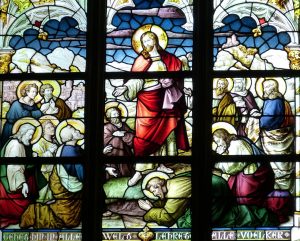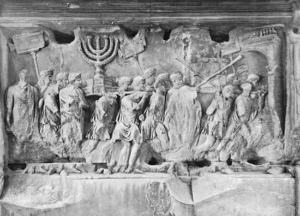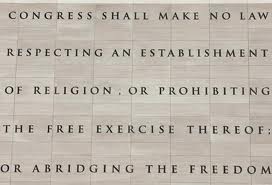 The concept of teaching with parables is not a new thing. Parables are allegorical relations or representations from which a moral value is drawn out for instructional purposes. While they are typically simple narratives or short stories, they can be used to illustrate a universal truth. Jesus used 35 parables1https://abujacatholicarchdiocese.org/catholics/why-were-parables-important-in-the-development-of-christianity.html in His ministry. They represent approximately one-third of His teaching. When asked by the disciples, why He used parables? Jesus replied:
The concept of teaching with parables is not a new thing. Parables are allegorical relations or representations from which a moral value is drawn out for instructional purposes. While they are typically simple narratives or short stories, they can be used to illustrate a universal truth. Jesus used 35 parables1https://abujacatholicarchdiocese.org/catholics/why-were-parables-important-in-the-development-of-christianity.html in His ministry. They represent approximately one-third of His teaching. When asked by the disciples, why He used parables? Jesus replied:
(Matthew 13:11–17)2NIV New International Version Translations – “Because the knowledge of the secrets of the kingdom of heaven has been given to you, but not to them. Whoever has will be given more, and they will have an abundance. Whoever does not have, even what they have will be taken from them. This is why I speak to them in parables: ‘Though seeing, they do not see; though hearing, they do not hear or understand. In them is fulfilled the prophecy of Isaiah: ‘You will be ever hearing but never understanding; you will be ever seeing but never perceiving. For this people’s heart has become calloused; they hardly hear with their ears, and they have closed their eyes. Otherwise, they might see with their eyes, hear with their ears, understand with their hearts, and turn, and I would heal them.’ But blessed are your eyes because they see, and your ears because they hear. For truly I tell you, many prophets and righteous people longed to see what you see but did not see it, and to hear what you hear but did not hear it.”
Parables work for teaching because they go directly to the heart of their message. Jesus used them effectively to challenge people in identifying a moral dilemma or a poor decision. A common description for a parable is that it is an earthly story with a heavenly meaning. Jesus explained to His disciples that His use of parables had a two-fold purpose:
- to reveal the truth to those who wanted to know it; and
- to conceal the truth from those who were indifferent.
In the previous chapter (Matthew 12), the Pharisees had publicly rejected their Messiah and blasphemed the Holy Spirit (Matthew 12:22–32). They fulfilled Isaiah’s prophecy of a hardhearted, spiritually blind people (Isaiah 6:9–10). Jesus’ response was to begin teaching in parables. Those who, like the Pharisees, had a preconceived bias against Jesus’ teaching would dismiss the parables as irrelevant nonsense. However, those who truly sought the truth would understand them.
(Proverbs 1:1–7) – “The proverbs of Solomon son of David, king of Israel: for gaining wisdom and instruction; for understanding words of insight; for receiving instruction in prudent behavior, doing what is right and just and fair; for giving prudence to those who are simple, knowledge and discretion to the young—let the wise listen and add to their learning, and let the discerning get guidance—for understanding proverbs and parables, the sayings and riddles of the wise. The fear of the Lord is the beginning of knowledge, but fools despise wisdom and instruction.”
Some guidelines are useful when reading parables. First, try to identify the spiritual truth that is being taught. You might even find hints in the verses before the parable. Jesus often set the stage in verses noted just before the parable. Next, separate the actual lesson from the story. With each parable, there is both a deep spiritual meaning as well as the dressings for an interesting story. You will find facts that lead to truth and information that add window dressing. Seeing both helps with understanding the intended message. All parables are consistent with Scripture. They are illustrations of God’s Truth. You should find a sense of consistency between any parable and the rest of the Bible.
Are parables true stories? Parables, like poetry, were never meant to be taken literally. Remember, their purpose was to teach the eternal Truth of God’s Word to those who believe in God. There are parables in the Bible other than those found in the Gospels. The book of Proverbs is full of them. Many theologians also place the story of Jonah and the whale into the category of a parable. We know that Jesus was probably history’s greatest teacher. Jesus is also God incarnate (in human form). He has no rivals, no equals. Jesus is also our Creator! The lessons of biblical parables are God’s Truth in the form of stories. Jesus made sure His disciples understood the meaning of any parables He used.
(Mark 4:34) – “He did not say anything to them without using a parable. But when he was alone with his disciples, he explained everything.”
Example – The Parable of the Pharisee and the Tax Collector (Luke 18:9-14)
While the parable starts on Luke 18:10, verse 9 sets a pretext:
9 “To some who were confident of their righteousness and looked down on everyone else, Jesus told this parable:”
Jesus is establishing that the teaching within this parable is about self-righteousness and spiritual pride. There are at least three sins that will be brought forward within people of wealth, position, and power.
10 “Two men went up to the temple to pray, one a Pharisee and the other a tax collector.”
Jesus then combines two interesting people in this lesson. One is a priest, a holy man who has been dedicating his life to avoiding sin (so he claims) by following God. The other was the ever-hated tax collector who was granted the power by the Romans to collect even more than was due to expand his profits and wages.
11 “The Pharisee stood by himself and prayed: ‘God, I thank you that I am not like other people—robbers, evildoers, adulterers—or even like this tax collector. 12 I fast twice a week and give a tenth of all I get.’”
Verse 11 and 12 find the Pharisee expressing pride over his spiritual purity, even to the point of comparing himself to a hated profession, like tax collecting and other sinful professions. This might extend the parable to include a lesson on the sin of being judgmental. Surely, everyone would recognize the Pharisee as better than a tax collector! That is the false pride example of sin.
13 “But the tax collector stood at a distance. He would not even look up to heaven, but beat his breast and said, ‘God, have mercy on me, a sinner.’”
Jesus then adds a fact of humility and a request for mercy from the tax collector. We might summarize the essence of this parable as two people, one expressing false pride, bragging of his perfection before God, being judgmental, and the other, humbly accepting that he was a sinful person, begging for God’s forgiveness. If we examine Scripture for other evidence of consistency, we might use:
(1 Corinthians 1:28-29) – “God chose the lowly things of this world and the despised things—and the things that are not—to nullify the things that are, so that no one may boast before him.”
(1 John 1:9) – “If we confess our sins, he is faithful and just and will forgive us our sins and purify us from all unrighteousness.”
(Matthew 7:1) – “Do not judge, or you too will be judged.”
14 “I tell you that this man, rather than the other, went home justified before God. For all those who exalt themselves will be humbled, and those who humble themselves will be exalted.”
Jesus sets the point of the parable, humility, repentance, not boasting, not false pride will get you to heaven. He makes sure that the disciples understood the example, the story, and the teachings.
Closing Ideas
What are we to take with us from a brief look at parables? Our Savior chose parables as one of His principal methods of sharing the Gospel’s message. Just as Jesus walked the sinful streets of Jerusalem, so are our streets filled with sin. Sin, evil people, are not waiting around for someone to share the gospel with them. Jesus held an open contempt for the self-righteous religious leaders of his day. He knew that spreading the Gospel in and around the people who needed to hear it was no easy task. His parables were no doubt just silly stories to the leaders of Jesus’ time. They were just out for themselves. His stories would have never passed the fact-checkers. Parables would have been censored had the leaders understood the real purpose and messages. But the people whom Jesus loved understood His truthful advice to them. That is the power of the parable!
If you think for a minute that our leaders today are not out for themselves, then you have been tuned to the wrong source of news. All get rich at the expense of the people they serve. Over 2,000 years since Jesus walked our earth, we have not progressed very far. The Apostle Paul tells us that we all must put on our spiritual armor (Ephesians 6) and prepare for a spiritual battle! After telling one of His parables, Jesus said, “Whoever has ears to hear, let them hear.” (Mark 4:9, 23). This was our call to listen to the parables of the Bible, not just as one would listen to ordinary stories but to listen as a people seeking the Truth from God!
Contemplations
- Thinking about your acceptance of Jesus, how would you create a parable about yourself?
- Ideas to Explore: What areas in your life did Jesus affect the most? How did you first become aware of your separation from God? What were the events that led up to your “Ah Ha” moment?
- Which of the parables in the Bible do you like the most?
- Ideas to Explore: Why were they easy to remember? Why were they meaningful to you?
- Who were the greatest teachers in your life?
- Ideas to Explore: Why do you still remember them? What was it about the teaching style that made them effective?
- Where in society today are parables still in use?
- Ideas to Explore: Education. Advertising. Family stories and history.
- 1
- 2NIV New International Version Translations








